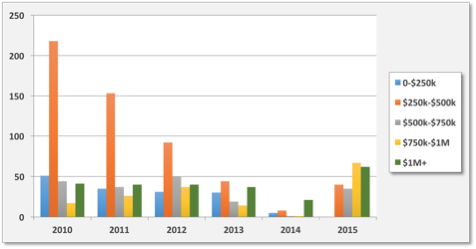The Runstad Center’s Washington State Condominium Report was released today. MSRE student, Center researcher, and author of the report David Leon shares his thoughts…
The City of Seattle has been experiencing unprecedented population and economic growth over the last five years. As the city’s population has increased and the number of high-paying jobs has grown, prices for housing have increased significantly. Condominium development could provide an affordable in-city option for new housing. At present, condominiums are not being built in sufficient numbers to meet demand, and those that are being built are being sold at prices that are beyond the means of the average-income individual. Reasons for this dynamic include financing and capital markets, insurance coverage, and to some degree, legal liability for condominium developers. This paper examines the current state of the housing market in Seattle, focusing on construction of new condominiums, with comparisons to six other Western cities. The paper then examines elements of the Washington Condominium Act that may bear on the heightened liability for condominium builders, and suggests some options for reducing the liability, after comparison to four other states and the Canadian province of British Columbia. Changes to the Washington Condominium Act may be necessary but not sufficient conditions for the building of more affordable condominium units in Seattle. Financial incentives may be required to create the conditions for more affordable condominiums. For the market to be incentivized to build more affordable condominiums without public subsidy, economic opportunity for builders must offset the greater perceived risks and inefficiencies of smaller scale building through lower costs. Insurance costs and the risk of litigation are factors that, if mitigated, can contribute to tipping the scale toward the delivery of more affordable for-sale condominium product.

Sales price tranches for Seattle new condominium sales, 2010-2015.
The Center’s findings were discussed further with UW Today. Click here for the full report.